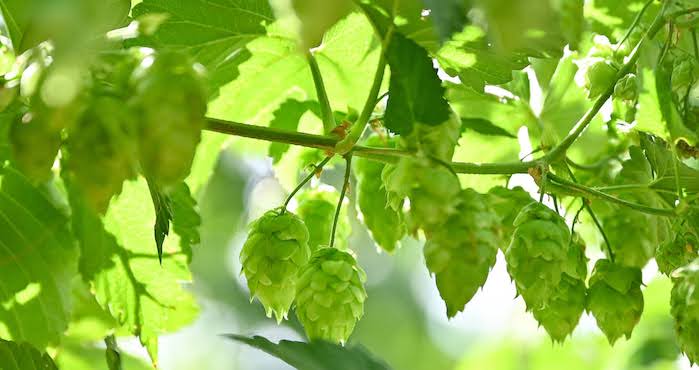Hop Science Newsletter (December 2019)
In this issue: research from Asia, microbial communities, and multi-stage dry-hopping.

A PILS A DAY KEEPS MENTAL FATIGUE AWAY…
Japanese researchers investigated the question whether hop bitter acids in beer have an impact on the cognition of healthy adults, specifically human cognition, mental fatigue, and mood state. In this randomized double-blind placebo-controlled study, 60 healthy adults (age 45–64 years) with self awareness of cognitive decline were randomly divided into 2 groups and received either orally administered hop bitter acids at 35 mg/day or a placebo for 12 weeks. Cognitive functions and mental states were assessed using neuropsychological tests and questionnaires. The change in verbal fluency was significantly higher in the hop bitter acid-treated group compared with the placebo group. Furthermore, subjective fatigue and anxiety at the end of the trial were significantly improved in the hop bitter acid-treated group.¹
A REVIEW OF ALL THE WONDERS OF HOPS
We all know that hops are the solution to almost everything. In relation to health, this Chinese research team compiled a very comprehensive review about the potential of hops in the context of antiseptic, (an)aphrodisiac, anticancer, antiplatelet, antibacterial, antidiuretic, anti-inflammatory, sedative, hypnotic, and stomachic properties with the objective of understanding how hop metabolites promote human health and reduce the risk of chronic disease.²
HOPS AND TOMATOES PROVIDE A HOME TO MANY MICROBIAL COMMUNITIES
As the universe is filled with dark matter that we don’t see, hops are covered with microbial communities that we are not aware of either. These US researchers are. They thoroughly investigated microscopic life on hop cones. The varieties Cascade, Perle, Mount Hood, Fuggle, Crystal, Newport, Brewer’s Gold, and Northern Brewer growing in upstate NY appear to be colonized by a microbial community of relatively low diversity and dominated by a single genus, Pseudomonas. Drying hop cones resulted in a reduction in the number of microbial sequences, by approximately 75%, but the relative proportions of taxonomic groups remained similar to what they were on fresh hop cones. The second big group consisted of Sphingomonas (Alphaproteobacteria). Variability in the bacterial diversity depends largely on biogeography and plant species. Tomato flowers appear to be most similar to H. lupulus, also being dominated by Pseudomonas bacteria. Therefore, studies into the benefits and risks of the microbiome present in H. lupulus, and effects that the microbiome may have on beer flavor and other characteristics, would appear to be best focused on bacteria in the genus Pseudomonas.3
MULTI-STAGE DRY-HOPPING – IS MORE OFTEN MORE?
Multi-stage dry-hopping is a technique that is widely used by brewers to achieve intense hop aroma in beer. These US researchers compared the properties of beers produced by single or two-stage dry-hopping at the same rate. On a pilot scale (1hl), an un-hopped base beer was subjected alternatively to single- or two-stage dry-hop additions at 386, 772, and 1544 g/ hL using Centennial hops. Pilot-scale dry-hopped beers showed increases in residual extract, pH, bitterness units, humulinones, and total polyphenols, accompanied by a decrease in iso-a-acids with increasing hop dosage. Changes in bitterness units, humulinones, and iso-a-acids all appeared to be more pronounced in the two-stage dry-hopped beers. Significant increases in six aroma attributes scaled by a trained panel were observed as a result of two-stage dry-hopping in the pilot-scale treatments. The results of this study provide strong evidence in favor of the hypothesis that greater hop aroma potential in beer may be achieved by multiple, low-dose dry-hop additions, as opposed to single additions at higher rates. On a pilot scale, beers produced using two-stage dry-hop additions yielded significantly higher aroma potential than single additions. So yes, more often is more!4
EVENTS:
Outlook Hops Academy
Why not start the year with a full day to acquire expertise in hop selection. Come to Nuremberg, January 21st.
Or join us for our Hop Flavour Impact Day on February 4th in Nuremberg – evaluate and create hop flavour!
Or join us for the Hop Flavourist Course Level 1 – the connoisseur on February 25th and 26th.
More info and registration here: https://www.barthhaas.com/en/academy.
REFERENCES



